
Kód: 19415752
Understanding Educational Psychology
Autor WOLFF-MICHAEL ROTH
This book takes up the agenda of the late (but unknown) L. S. Vygotsky, who had turned to the philosopher Spinoza to develop a holistic approach to psychology, an approach that no longer dichotomized the body and mind, intellect a ... celý popis
- Jazyk:
 Angličtina
Angličtina - Väzba: Brožovaná
- Počet strán: 328
Nakladateľ: Springer International Publishing AG, 2018
- Viac informácií o knihe

Mohlo by sa vám tiež páčiť
-
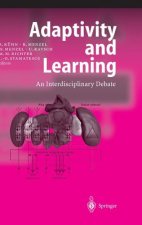
Adaptivity and Learning
139.54 € -
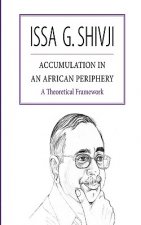
Accumulation in an African Periphery
45.55 € -

German Army Shoulder Boards and Straps 1933-1945
85.48 € -6 % -
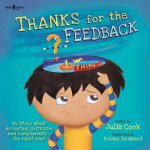
Thanks for the Feedback, I Think?
12.69 € -4 % -

Fifteenth (Scottish) Division 1914-1919
43.81 € -
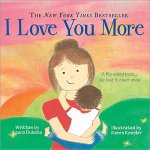
I Love You More Padded Board Book
9.92 € -4 % -

Insignia of the Waffen-SS: Cuff Titles, Collar Tabs, Shoulder Boards and Badges
17.80 € -17 %
Darujte túto knihu ešte dnes
- Objednajte knihu a vyberte Zaslať ako darček.
- Obratom obdržíte darovací poukaz na knihu, ktorý môžete ihneď odovzdať obdarovanému.
- Knihu zašleme na adresu obdarovaného, o nič sa nestaráte.
Viac informácií o knihe Understanding Educational Psychology
Nákupom získate 360 bodov
 Anotácia knihy
Anotácia knihy
This book takes up the agenda of the late (but unknown) L. S. Vygotsky, who had turned to the philosopher Spinoza to develop a holistic approach to psychology, an approach that no longer dichotomized the body and mind, intellect and affect, or the individual and the social. In this approach, there is only one substance, which manifests itself in different ways in the thinking body, including as biology and culture. The manifestation as culture is premised on the existence of the social. In much of current educational psychology, there are unresolved contradictions that have their origin in the opposition between body and mind, individual and collective, and structure and process-including the different nature of intellect and affect or the difference between knowledge and its application. Many of the same contradictions are repeated in constructivist approaches, which do not overcome dichotomies but rather acerbate them by individualizing and intellectualizing our knowledgeable participation in recognizably exhibiting and producing the everyday cultural world. Interestingly enough, L. S. Vygotsky, who is often used as a referent for making arguments about inter- and intrasubjective "mental" "constructions," developed, towards the end of his life, a Spinozist approach according to which there is only one substance. This one substance manifests itself in two radically different ways: body (material, biology) and mind (society, culture). But there are not two substances that are combined into a unit; there is only one substance. Once such an approach is adopted, the classical question of cognitive scientists about how symbols are grounded in the world comes to be recognized as an artefact of the theory. Drawing on empirical materials from different learning settings-including parent-child, school, and workplace settings-this book explores the opportunities and implications that this non-dualist approach has for educational research and practice.
 Parametre knihy
Parametre knihy
145.79 €
- Celý názov: Understanding Educational Psychology
- Podnázov: A Late Vygotskian, Spinozist Approach
- Autor: WOLFF-MICHAEL ROTH
- Jazyk:
 Angličtina
Angličtina - Väzba: Brožovaná
- Počet strán: 328
- EAN: 9783319819839
- ISBN: 9783319819839
- ID: 19415752
- Nakladateľ: Springer International Publishing AG
- Hmotnosť: 5212 g
- Rozmery: 235 × 155 × 20 mm
- Dátum vydania: 22. April 2018
Obľúbené z iného súdka
-

Dune
13.10 € -

Haunting Adeline
30.81 € -

Berserk Deluxe Volume 2
52.62 € -

White Nights
3.57 € -24 % -

Powerless
11.35 € -13 % -

Atomic Habits
15.96 € -15 % -

Dune Messiah
9 € -20 % -

Berserk Deluxe Volume 3
52.92 € -

One Day
12.58 € -13 % -

Berserk Deluxe Volume 1
44.43 € -13 % -

Iron Flame
16.27 € -19 % -

Surrounded by Idiots
10.13 € -16 % -

Harry Potter and the Prisoner of Azkaban (Minalima Edition)
27.84 € -32 % -

Gravity Falls Journal 3
22 € -

Heaven Official's Blessing: Tian Guan Ci Fu (Novel) Vol. 1
22 € -

The Creative Act
24.05 € -13 % -

Dune
9.72 € -19 % -

Hunting Adeline
31.73 € -

A Little Life
17.50 € -

Children of Dune
8.80 € -22 % -

Heaven Official's Blessing: Tian Guan Ci Fu (Novel) Vol. 2
20.36 € -2 % -

Bungo Stray Dogs, Vol. 8 (light novel)
16.06 € -1 % -

Percy Jackson and the Olympians 5 Book Paperback Boxed Set
47.80 € -

Solo Leveling, Vol. 1
21.49 € -

The Prisoner's Throne
9 € -25 % -

Court of Thorns and Roses
9.31 € -22 % -

Cry Baby Coloring Book
10.84 € -4 % -
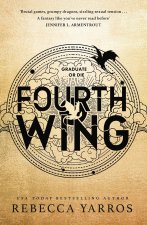
Fourth Wing
15.04 € -24 % -

Icebreaker
9.41 € -16 % -

Berserk Deluxe Volume 6
47.80 € -6 % -

Avatar, the Last Airbender: The Kyoshi Novels (Box Set)
27.53 € -33 % -

The 48 Laws of Power
26.20 € -4 % -

House of Leaves
23.44 € -22 % -

Twisted Lies
9.72 € -19 % -
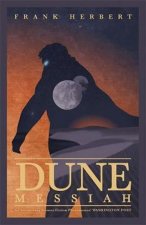
Dune Messiah
12.69 € -12 % -

No Longer Human
16.99 € -

48 Laws Of Power
22.62 € -5 % -

Twisted Games
9.41 € -22 % -

Caraval Paperback Boxed Set
39.82 € -8 % -

Solo Leveling, Vol. 2
22.41 € -

Open Circuits
34.39 € -16 % -

Berserk Deluxe Volume 5
51.29 € -

Heaven Official's Blessing: Tian Guan Ci Fu (Novel) Vol. 3
16.78 € -19 % -

Berserk Deluxe Volume 4
46.58 € -9 % -

Court of Mist and Fury
9.31 € -20 % -

SOLO LEVELING V08
22.41 € -

English File Upper Intermediate Multipack A (4th)
22.21 € -

CHAINSAW MAN V14
11.25 € -14 % -

Before the Coffee Gets Cold
10.43 € -20 %
Osobný odber Bratislava a 2642 dalších
Copyright ©2008-24 najlacnejsie-knihy.sk Všetky práva vyhradenéSúkromieCookies



 19 miliónov titulov
19 miliónov titulov Vrátenie do mesiaca
Vrátenie do mesiaca 02/210 210 99 (8-15.30h)
02/210 210 99 (8-15.30h)